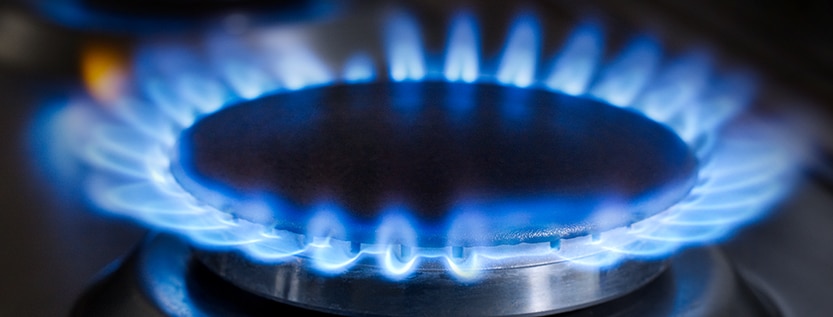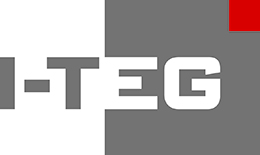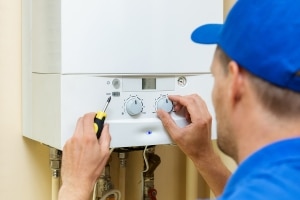
Gas Engineering
Planning of technical installations for gas supply
Gas is a vital fuel, which is used in Germany mainly for heating homes and commercial buildings. Natural gas accounts for the lion’s share. The share of natural gas in fossil fuels in Germany is currently 25 percent and will probably grow to more than 50 percent by 2080.
In contrast, gas plays only a minor role in power generation in Germany. In addition to natural gas, biogas or synthetic gas are also used locally. Compared to other fossil fuels, gas burns relatively cleanly, but has the disadvantage that it cannot be stored. In addition, there are strong limitations in the choice of the appropriate supplier. Gas is not available everywhere as an energy source.
What is gas engineering?
Gas engineering is a sub-area of technical building equipment. It includes systems for gas supply as well as boilers based on gas supply, safety devices and exhaust systems. In addition to heating, gas is also used for cooking in both private homes and commercial buildings such as commercial kitchens or restaurants. If the systems (e.g. radiators) are permanently installed, they are also included in the technical building equipment.
What are the tasks of the TGA in the field of gas engineering?
That is quite a lot, which partly overlaps with other tasks. For example, if the customer decides to have a gas supply system installed in the building, the first step is to find the most suitable alternative during the planning stage. Natural gas is not available everywhere. On the other hand, there are many biogas plants that still have sufficient free capacities.
In the planning phase, the gas engineering systems and equipment must then be transferred to the BIM model. In addition to the pipelines for supply and distribution, these include permanently installed boilers and radiators for gas, control and safety devices and systems for the removal of exhaust gases.
When installing and operating gas systems in buildings for the purpose of providing heat, a whole series of legal regulations must be observed, which are specified by §49 (2) of the German Energy Industry Act (EnWG). Gas is a potentially dangerous fuel because it can easily escape and spread throughout the building. It is harmful to health and forms an explosive mixture in the room air above a certain concentration.
Gas engineering in facility management
This is why gas engineering also plays an important role in this area of technical building equipment. Gas engineering installations and systems must be regularly maintained and checked to prevent accidents. For example, a load and leak test must be carried out not only when new systems are installed, but also during maintenance and repair work on existing systems.
Safety tests must be carried out at regular intervals, including the inspection of integrated safety devices, including, for example, gas flow monitors, safety tests in accordance with TRGI and continuous monitoring of the exhaust gas routing. The periodic safety checks are necessary because gas leaks can occur repeatedly due to accidental damage, tampering or errors during use or maintenance.
To prevent the unintentional escape of gas, the gas equipment must be maintained at regular intervals. The legislator provides for an annual interval for this.
Summary
Gas engineering is a sub-area of supply engineering and plays an important role in the provision of energy in buildings for heating and cooking, but also as a supplier of heat for technological purposes, a role which will continue to increase in the future. As gas is a potentially dangerous fuel, gas technology must be continuously monitored and maintained at regular intervals.
These tasks are also carried out by the technical building equipment and fall under the responsibility of the facility management department, which is also known as the property management department.



